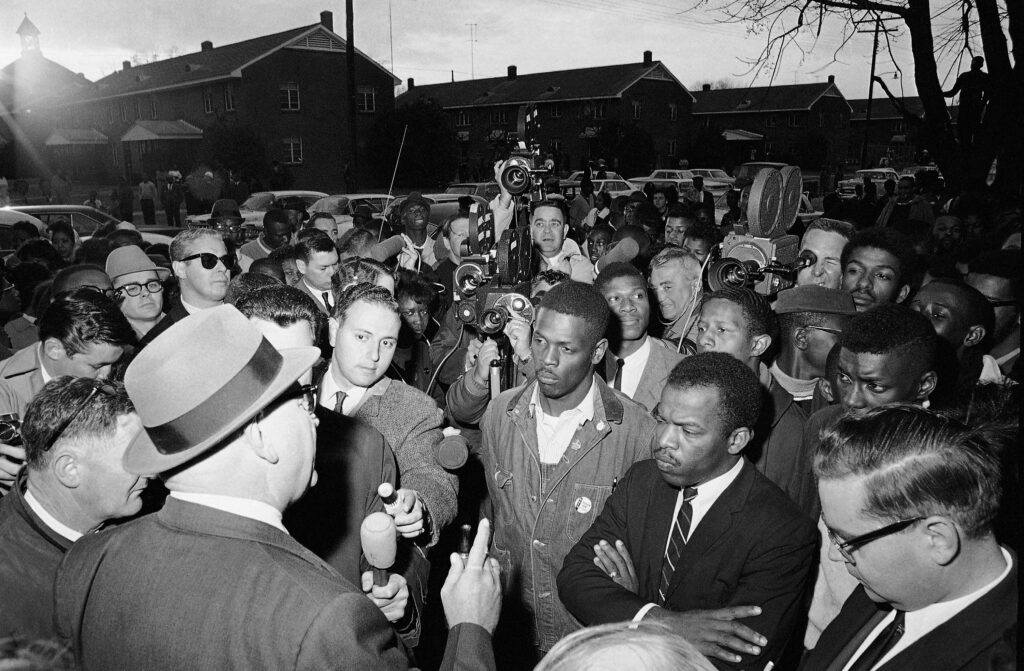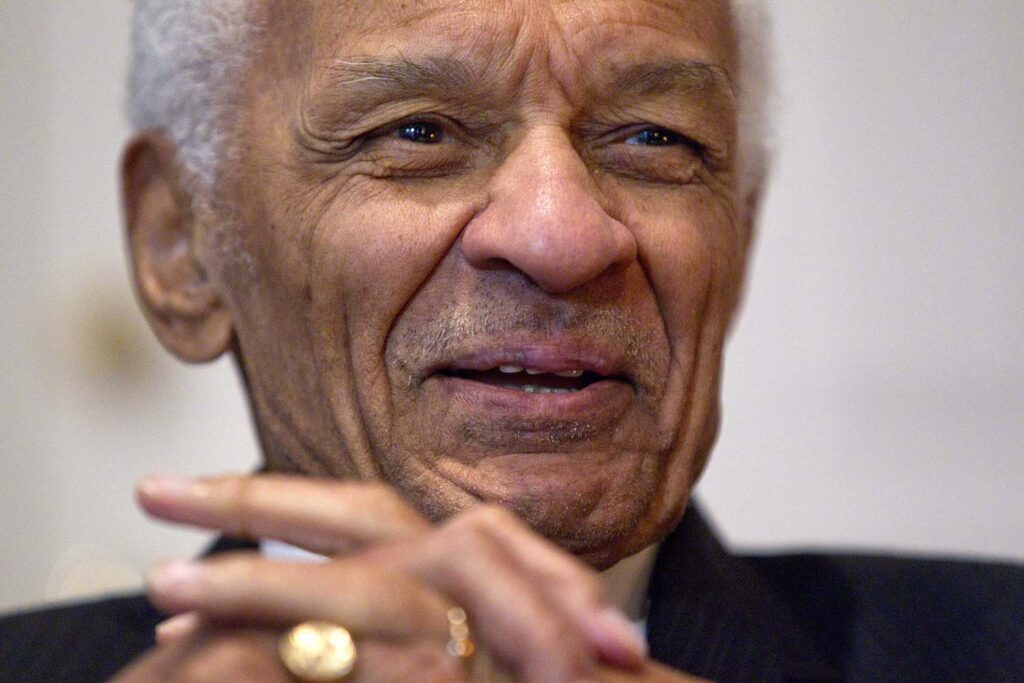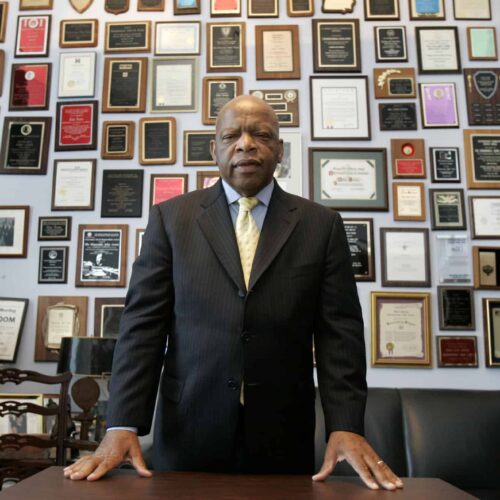Introduction
Civil rights icon. Freedom fighter. Good troublemaker.
This edition of The Moment celebrates the legacy of Congressman John Lewis who died last week at the age of 80. Lewis was beaten and jailed dozens of times as he led efforts to desegregate restaurants and public establishments and organize Black people to vote in the South in the 1960s.
In his later years, like many of his generation of civil rights activists, he had to fight to maintain the voting rights he helped to achieve.
Lewis was the last surviving speaker from the historic 1963 March on Washington, which drew hundreds of thousands of people to the capital to demand jobs and freedom. Martin Luther King Jr.’s prophetic “I Have a Dream” speech went down in history that day. But Lewis’ powerful words, as chairman of the Student Nonviolent Coordinating Committee (SNCC), also struck a chord with the crowd, even though the speech was tempered at the last minute. A leader of the march asked SNCC and Lewis, then 23, to tamp down criticism of President John F. Kennedy’s proposed civil rights bill. Some march leaders didn’t want to alienate Kennedy. Out of respect for A. Philip Randolph, among the march’s organizers, members of SNCC quickly rewrote the speech.
You’re receiving this email because you subscribed to The Center for Public Integrity’s Watchdog Newsletter. If you want to opt out of receiving The Moment, unsubscribe here.
In his own words
As we say goodbye to Lewis during yet another time of national reckoning about racial injustice, it’s fitting to share an excerpt from the original draft of the speech.
“People have been forced to leave their homes because they dared to exercise their right to register to vote. What is there in this bill to ensure the equality of a maid who earns $5 a week in the home of a family whose income is $100,000 a year?
“For the first time in one hundred years this nation is being awakened to the fact that segregation is evil and that it must be destroyed in all forms. Your presence today proves that you have been aroused to the point of action.
“We are now involved in a serious revolution. This nation is still a place of cheap political leaders who build their careers on immoral compromises and ally themselves with open forms of political, economic and social exploitation. What political leader here can stand up and say, “My party is the party of principles?” The party of Kennedy is also the party of Eastland. The party of Javits is also the party of Goldwater. Where is our party?
“The revolution is at hand, and we must free ourselves of the chains of political and economic slavery. The nonviolent revolution is saying, “We will not wait for the courts to act, for we have been waiting for hundreds of years. We will not wait for the President, the Justice Department, nor Congress, but we will take matters into our own hands and create a source of power, outside of any national structure, that could and would assure us a victory.

“To those who have said, ‘Be patient and wait,’ we must say that ‘patience’ is a dirty and nasty word. We cannot be patient, we do not want to be free gradually. We want our freedom, and we want it now. We cannot depend on any political party, for both the Democrats and the Republicans have betrayed the basic principles of the Declaration of Independence.
“We all recognize the fact that if any radical social, political and economic changes are to take place in our society, the people, the masses, must bring them about. In the struggle, we must seek more than civil rights; we must work for the community of love, peace and true brotherhood. Our minds, souls and hearts cannot rest until freedom and justice exist for all people.”
We can’t do this work without your support.
The story behind Lewis’ speech
At the time of the march, Lewis was chair of SNCC, the only national civil rights organization led by young people. Many of its members and supporters had been jailed and beaten for organizing Black people to vote. As law enforcement harassed and attacked African Americans throughout the South, they received little federal protection. And SNCC wanted to call attention to this. They edited the speech because A. Philip Randolph, who led the first effort for a national march on Washington in 1941, wanted unity at the 1963 march.
Visit the SNCC Digital Gateway, an online archive about the organization and its ongoing relevance today, to learn more about the events that influenced the speech. Also visit the Zinn Education Project.
A must-see for the moment
“John Lewis: Good Trouble,” a documentary about the congressman combines archival footage and interviews to capture his impact on American democracy.

Remembering the Rev. C.T. Vivian
The Rev. C.T. Vivian, a leader of the Southern Christian Leadership Conference, who was closely associated with King, died the same day as Lewis at the age of 95. Like Lewis and hundreds of others in the civil rights movement, Vivian put his life on the line to end segregation. Watch his interview about how he first met King.
What subjects do you want to explore? Email your questions and comment to ssmithrichardson@publicintegrity.org. Until next time, make good trouble.


Join the conversation
Show Comments